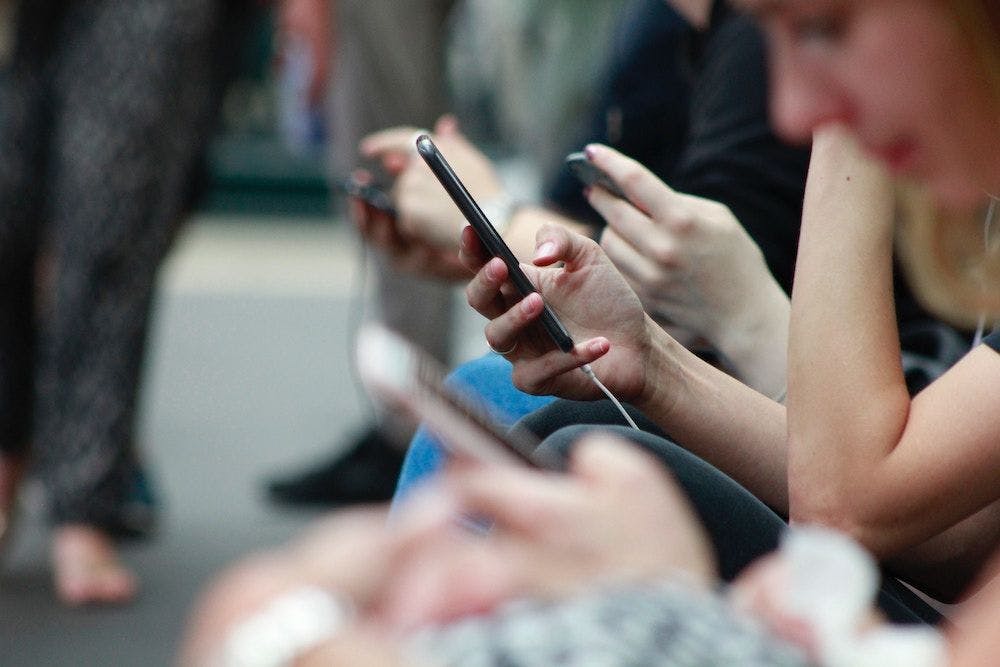
Do you ever get that sinking feeling when you check your pocket to find there’s an empty space where your phone should be? A wave of panic washes over you, followed by a feeling of dread. This is the phobia you never knew you had...
Don’t get me wrong, it’s annoying when I’m without my phone – sometimes it can feel like my whole life exists within that screen. Yet one day without it, and I can make it through just fine.
But for some people, the thought of not knowing where your phone is, or not having it with you, can cause real anxiety.
If the latter feels more familiar to you, that you must know where your phone is at any given moment through the day, and the thought of being without it leaves your blood running cold, you may be experiencing nomophobia.
The term is an abbreviation for ‘no-mobile-phone phobia’, which was coined during a 2008 study of anxieties experienced by mobile phone users by the Post Office. It found that nearly 53% of mobile phone users in Britain tend to be anxious when they ‘lose their mobile phone, run out of battery, or have no network coverage’.
Nomophobia is set to be among the biggest non-drug addictions of the 21st century
Granted, this study is more than 10 years old, and a lot has changed in this time. Significantly, another anxiety pointed to was ‘running out of credit’ – I rest my case. But, I wonder whether things have become even worse in the last decade? Certainly, there seems to be a worrying trend among the youngest in society, with a 2017 YouGov study revealing that 38% of teens felt they couldn’t last even a day without their smartphone.
Hypnotherapist Biodun Ogunyemi shares some insight into the problem: “Technological advancement has meant that we literally carry our daily lives around in our pocket. We not only use our phones to instantly communicate with people anywhere in the world, but we carry out our business via emails, and we can pay for goods and services with them.”
It’s true that, as a society, we now rely on our phones more than ever before. Phones can make our lives so much easier and, yes, it’s OK to use this to your advantage. But the danger comes when you are dependent on your phone. We shouldn’t be at the mercy of our own technology.
Are we addicted to our Mobile phones?
Although nomophobia isn’t in the current edition of the Diagnostic and Statistical Manual of Mental Disorders, it has been proposed as a ‘specific phobia’. But, in the meantime, the jury’s out as to exactly what nomophobia should be classified as.
It could be a phobia or a type of anxiety disorder, but, for the most part, nomophobia is synonymous with smartphone addiction. In fact, it’s predicted to be among the biggest non-drug addictions of the 21st century.

The symptoms of nomophobia are certainly akin to those of other addictions. “If you accidentally leave the house without your phone and go into a panic, this impacts you not only psychologically, but also on a physiological level,” says Biodun. “You may experience symptoms such as shaking, sweating and palpitations.”
Addictive behaviour can lead to a number of psychological issues. One such factor is low self-esteem; if we are constantly seeking reassurance from our phones (usually through social media engagement), our sense of self-worth becomes reliant on our proximity to our smartphones.
How to take control of your relationship with your phone
The best thing is to start small. Set yourself a goal, perhaps to leave your phone at home while you pop to the shops. Or, if you leave your phone on your desk at work, try putting it in your bag or drawer. The aim isn’t to go completely phone-free (unless that’s your ultimate goal), it’s just to help you feel less reliant on it.
With any phobia or addiction, professional support could help. Although, as it is a relatively new concept, there are few scientifically-backed treatment options.
However, cognitive behavioural therapy and EMDR have shown to be promising options.
Another method for treating phobias and addictions is hypnotherapy. Biodun explains: “Hypnotherapy can help by alleviating the physiological symptoms that accompany the panicked feeling. This can help rationalise the situation, so the person can realise they don’t have to be a slave to technology, and can continue their lives without any illogical fears.”
The key takeaway here is that, like any phobia, nomophobia is an irrational fear. We’ve survived (and thrived) without smartphones before, and there is no reason why you can’t continue to do so – even if you do leave your phone at home.
You may experience nomophobia as a result of pre-existing mental health problems, such as separation anxiety, social anxiety, or panic disorder. If you are concerned about your mental health or any related symptoms, seek advice from a qualified professional.

